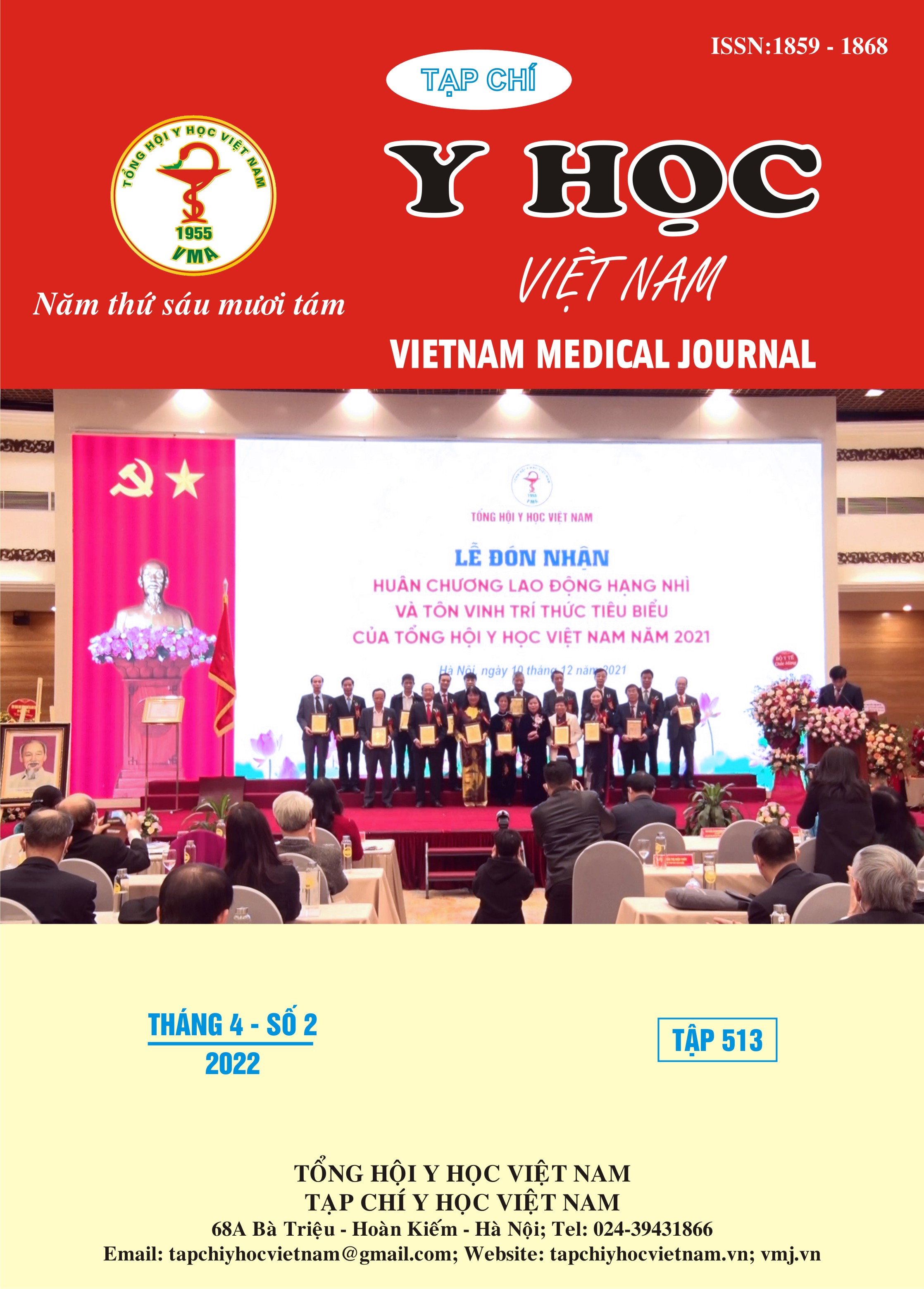TREE-YEAR OUTCOMES OF PERCUTANEOUS RADIOFREQUENCY ABLATION AS FIRST-LINE THERAPY OF EARLY HEPATOCELLULAR CARCINOMA
Main Article Content
Abstract
Objectives: This study aimed to assess 3 year outcome of radiofequency ablation as a first-line therapy of early-stage hepatocellular carcinoma. Methods: From August 2018 to August 2021. The medical records of 32 patients who underwent radiofequency ablation for single HCC. Patients were analyzed. Results: In the analysis of the entire cohort of 32 patients with early-stage. (Male: Female = 21:11, mean age, 51.2 years) follow-up period ranged from 1 to 3 years. The medium tumor size was 2.8 cm. Child-pugh class A and B were 58.8 and 5.9%. We assessed the 3 year follow-up results of survival rates. Corresponding overall survival rates after 1 year and 3 years were 100% and 90.6%, respectively. Conclusion: Three-year survical outcome after percutaneous radiofrequency ablation as a first-line therapy of hepatocellular carcinoma were favorable overall survival.
Article Details
Keywords
Hepatocellular carcinoma, RFA
References
2. EASL Clinical Practice Guidelines: Management of hepatocellular carcinoma. J Hepatol, 2018. 69(1): p. 182-236.
3. Shiina, S., et al., Radiofrequency ablation for hepatocellular carcinoma: 10-year outcome and prognostic factors. Am J Gastroenterol, 2012. 107(4): p. 569-77; quiz 578.
4. Lencioni, R. and L. Crocetti, Local-regional treatment of hepatocellular carcinoma. Radiology, 2012. 262(1): p. 43-58.
5. Ferlay, J., et al., Estimates of worldwide burden of cancer in 2008: GLOBOCAN 2008. Int J Cancer, 2010. 127(12): p. 2893-917.
6. Chen, M.S., et al., A prospective randomized trial comparing percutaneous local ablative therapy and partial hepatectomy for small hepatocellular carcinoma. Ann Surg, 2006. 243(3): p. 321-8.


